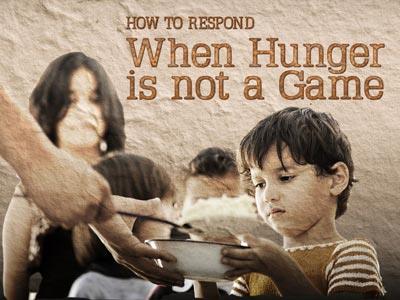-
What Are We Hungry For?
Contributed by The Rev Deniray Mueller on Aug 3, 2018 (message contributor)
Summary: what feeds us more than physical bread?
Hunger hurts.
There are many ways to be hungry, my friends.
And they ALL hurt.
The organization Bread For the World estimates that 12 million children and 19 million adults in the U.S. go hungry each day and cannot afford the food they need to maintain physical health.
For those of you who may not know, I am the Deacon-In-Charge of In The Garden Ministry housed at Trinity Church on Capitol Square. We are gratified that Saint John’s is one of seven partners of the In The Garden ministry. We are a community consisting of homeless, minimallyhoused and low-income friends gathering every Sunday afternoon for worship, sharing and a good meal. About a third of our community live ‘on the land’, and some of them do not have the resources to purchase their own food. We occasionally see families with small children who haven’t eaten (on Sundays there are not the soup kitchens serving that normally serve during the week). If you have ever encountered hungry child ‘up close and personal’, you will never forget it. All these people know hunger because they live with the physical hurt of hunger every day.
For thousands of years, bread has been the symbol of necessary food and the sustenance of life. It is easy to understand why. It is nutritious, providing carbohydrates, starch and protein to the body. It is easy to make and, in some form or other, is a part of every culture. Bread is essential. Our problem in this overdeveloped nation tends to be that we get too much to eat. How ironic, that in a nation with TWO TV channels devoted entirely to food, obesity for children and adults is a growing national problem.
And yet we have millions going hungry each day?
And yet, people are dropping dead in the Sudan for want of food?
For most people in the world, most of the time, the problem is that they have too little to eat. They may subsist on only one meal a day, often times less than that.
Mahatma Gandhi once said: “There are people in the world so hungry that God cannot appear to them except in the form of bread.”
And the only thing that can remedy that hunger is bread . . . physical bread. And bread is more than nutrition. It’s comfort. The texture, the weight, the taste, all combine to make bread both the staff of life and the number one comfort food.
But, not only do the people who come to In The Garden hurt with physical hunger, some of them also suffer from spiritual hunger. They have never had – or have long since forgotten – any spiritual training or experiences in their lives. They may have been raised in churches that preached either guilt or sin, and so left any semblance of church long ago to avoid the condemnation of those ‘holier than thou’. They are sad and depressed, angry and bitter, or conflicted and confused – or all of the above. They have not known love – if ever – for a long time. And they have forgotten how to love. They need a hug, a smile, someone to treat them with kindness and respect; and then it takes a long time to heal. But this is the spiritual hunger that we try to feed at In The Garden, as well as their physical one.
But you don’t have to be homeless to be spiritually hungry. Some of the wealthiest people in the world are bereft of the spiritual food that feeds our souls. And all of us, at one time of another, suffer from spiritual hunger.
What we really hunger and thirst for is something much deeper than ordinary food and drink.
We sometimes stuff ourselves, trying to fill the gaping hole inside of us with food, clothes, gadgets and frantic activities, as if we could eat or buy something that would satisfy us. But we could binge at every meal and buy all of Easton Mall and still be hungry for something more. The hunger which we long for is much more difficult to satisfy than the hunger for bread.
John tells us the people seeking Jesus were looking for one thing, but finding another. Jesus was — and is — more fulfilling than earthly food, but the people then could not see it, and many today cannot.
We are to come to Jesus and never hunger or thirst again. But Jesus also admonishes us, saying:
"Very truly, I tell you, you are looking for me, not because you saw signs, but because you ate your fill of the loaves.” (John 6:27)
We are greedy; when we binge, we want more and more. Ordinary food and material goods becomes normal every day; we want something more. Jesus talks about a food that will last, a sustenance that nourishes and strengthens for eternal life, and not just for this life.

 Sermon Central
Sermon Central



